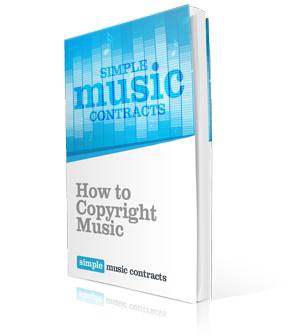Written by US Music Attorney with 20 Years Experience
Download Instantly in Word
Five New Contracts a Month
One Year of Updates
A Look At Music Performance Contracts
In addition to the thrill afforded a band that comes from driving around the country and playing music to many different people in different areas, touring can also be one of the most lucrative aspects of being an artist. In fact, with the definition of the record industry being in a nearly constant state of flux in these changing music times, many bands make a living purely off of touring and the merchandise they sell while on the road. Though it’s not a constant throughout the industry, album sales are becoming less and less of a moneymaker for many artists.
With all that said, it’s extremely important to know the legal side of performing these shows, and to understand the guarantees music performance contacts provide both the artist and the venue. Particularly for young bands, the allure of jumping in a van and hitting the road can be great, but whether the shows are booked by members of the band themselves or a booking agency, a lot of planning has to be put into a tour, and music performance contracts are a big part of that planning. While the contracts will be specific to each artist and venue, here are the major points that will be included in these contracts:
After the contracts legally state the band and venue (or “Purchaser”) involved in the contract, the date and time for the show will be meticulously documented, not just for the show itself, but also for load-in, sound check and any other specific times involved. Though this can seem like a no-brainer, the schedule of a touring band is extremely hectic, and all times must be in place not only to let the artist know when they need to be where, but also to allow the venue to negotiate other sound check/load-in times with other performers on the same bill.
Price of Performance
This will state exactly what the performer will be paid and when they will be paid. This section will note whether the performer will be given a flat fee, or if there will be a guarantee plus door sales. Sometimes a deposit will be paid to the performer—if this is the case, the contract will state when this payment will be delivered.
Merchandise
Sometimes artists will pay a percentage of gross merchandise sales to the venue. If this is the case, that percentage will be stated in the contract. Whether or not the venue receives any compensation from merchandise sales, contracts will usually stipulate that the venue must provide a specific location for merchandise sales.
Obligations of Purchaser
In addition to the aforementioned merchandise sales stipulation, this section of the contract will document all the things the venue must provide for the artist. This will essentially be a mini version a tour rider, which may be a separate document for bigger artists. This section of the contract will include things such as dressing room requirements, sound system requirements and security requirements, amongst others.
Cancellation
In the event that the Purchaser cancels the show, they usually will be required to pay a proportion of the guaranteed fee to the band. This is often broken down as different percentages depending on how long before the scheduled performance the cancellation occurs.
The rest of the contract will include additional stipulations that are common on many music contracts, such as the establishment of the relationship of parties, waivers and severability clauses. Music performance contracts are in place to protect the rights of both the artist and the venue involved, and are among the most important contracts in the music world because of the amount of money that can be made from touring. And as touring becomes more and more important, so will the value of these contracts.

